The women MPs we want — voters have their say
In Mpigi district, the voters sampled said they would vote former trade minister Amelia Kyambadde, while in Wakiso district, 23.8% of the sampled voters rooted for Rosemary Sseninde, the former district
The battle for women district MPs, voters said, will be determined by issues as opposed to the usual political grandstanding that has shaped the campaign mood in previous elections.
By Mary Karugaba
Journalists @New Vision
MP Betty Nambooze Minister Phiona Nyamutoro Adeke Anna Ebaju, Woman Representative Soroti (FDC) Achieng Sarah Opendi, Woman Representative Tororo (NRM)nrm) Rosemary Sseninde Juliet Suubi Kinyamatama Agasha Juliet Bashiisha Teddy Nambooze Teddy, Woman Representative Mpigi (NUP) Adoa Hellen, Woman Representative Serere (NRM) Taban Sharifah Aate, Woman Representative Koboko (NRM) Nabukeera Hanifa Hussein, Woman Representative Mukono (NUP) Dr. Jane Ruth Aceng Judith Nabakooba Mary Paula
The Vision Group research team conducted an opinion poll between March and May 2025, covering 6,006 Ugandans across 58 districts and all 17 sub-regions.
It was conducted in order to make an assessment of the general public’s perception of the forthcoming general elections. Respondents were asked an open-ended question: “Who do you think should be this area’s next district woman MP?”
The names mentioned in the poll were proposed by the respondents.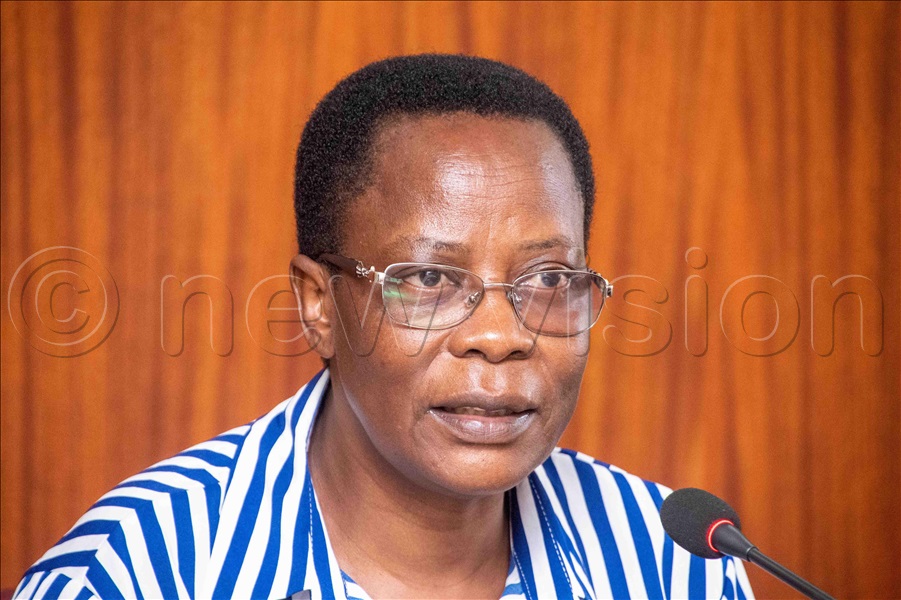
The battle for women district MPs, voters said, will be determined by issues as opposed to the usual political grandstanding that has shaped the campaign mood in previous elections.
Voters, particularly, singled out the contribution of someone to service-delivery challenges within their respective communities as one of the major drivers of their choice for a particular contender.
During the survey, each of the 6,006 respondents was asked: “Who do you think should be this area’s next district woman MP?” The sampled respondents were not given any names to select from. They simply mentioned politicians of their choice. In some of their responses, voters simply mentioned politicians, who are not necessarily from the sampled district or city.
The respondents were randomly sampled from both rural and urban areas. Of the total respondents, 2,433 were from urban areas, while 3,573 respondents were picked from rural areas.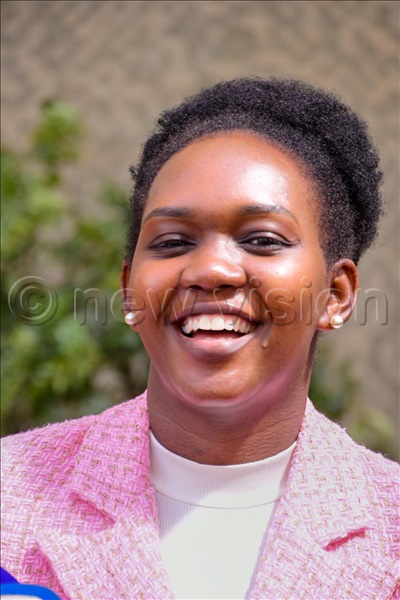
The objective of the survey was to gauge the public’s perceptions and preferences about the political climate and the general political pulse ahead of the 2026 general election.
The survey indicates that on top of the issue-based message of service delivery, voters also attributed their choice of a particular district women MP on the power of incumbency, grassroots connection with communities, effective representation in Parliament, need for change and party affiliation.
On the other hand, some respondents etched their support for a particular contender on their position in the Government.
Some respondents in the districts said they did not know the contestants, while others refused to answer.
According to the Electoral Commission roadmap, Ugandans will elect their political representatives between January 12 and February 9, 2026. Campaigns are expected to kick off in September 2025 and end in early January 2026.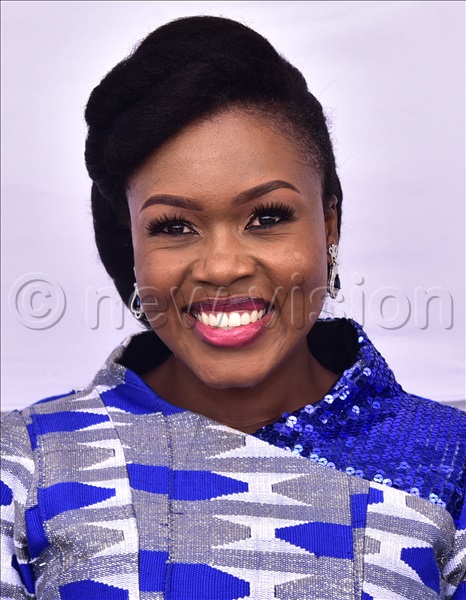
In the final part of the voters’ choice for the district woman Member of Parliament, the survey shows a mixed bag of choices, with some voters leaning more towards change while others are rooting for maintaining the status quo.
According to the survey, the voters’ desire to have new faces or former MPs back in Parliament paints a gloomy picture for incumbents, if elections were held today.
For instance, in Ntungamo, 10.2% of the voters said they would vote for the first daughter, Diana Kyaremera Museveni, as their woman MP if elections were held today. It is not clear whether Kyaremera has any interest in joining politics. The incumbent in Ntungamo is Joselyn Kamateneti.
In Lwengo district, a similar pattern has been noted, with 25% of the sampled voters saying they would vote for Sarah Nkonge. The incumbent in Lwengo is Cissy Namujju.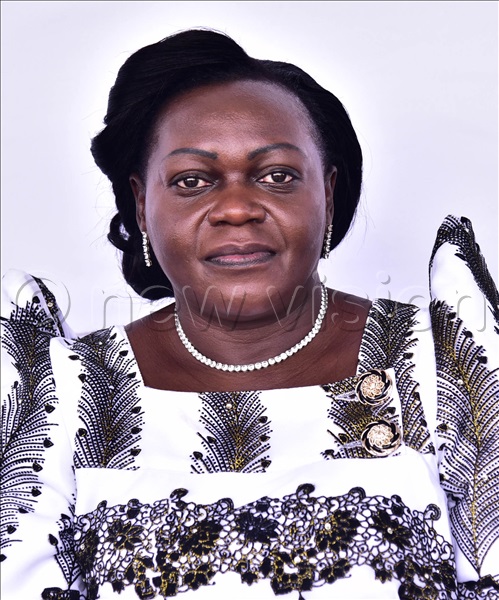
Previous surveys have indicated that the attrition rate in Parliament is 70% every electoral cycle.
For Koboko district, 4.5% of the sampled voters said they would vote for the state minister for investment, Evelyn Anite. Anite recently said she will no longer take part in elective politics. Taban Aate Sharifah is the incumbent.
In Mpigi district, the voters sampled said they would vote former trade minister Amelia Kyambadde, while in Wakiso district, 23.8% of the sampled voters rooted for Rosemary Sseninde, the former district.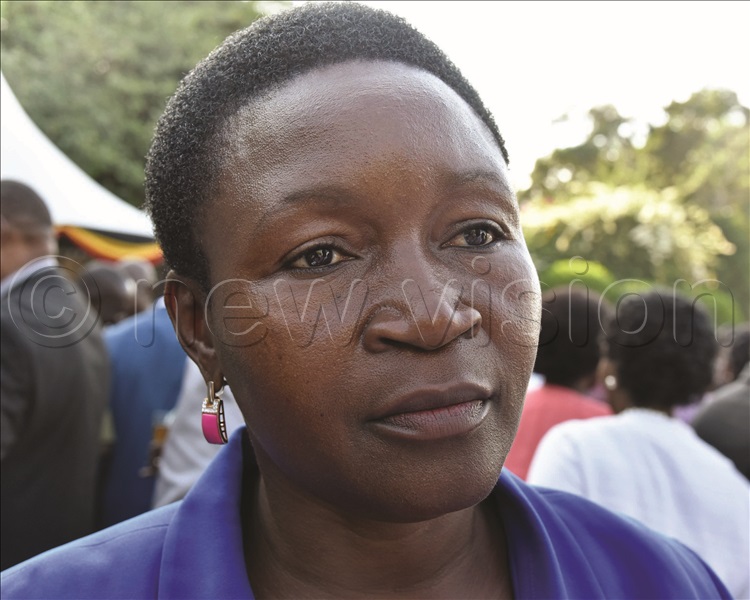
Ntungamo
Joselyn Kamateneti, the current district woman MP, leads with 74.6% of the votes in Ntungamo. Kamateneti is greatly supported for her contributions towards service delivery in the area, her trustworthiness and her transparent approach for service delivery. Furthermore, she is known for a good skill set in leadership.
According to the poll, President Museveni’s daughter Diana Museveni came in second position with 10.2%. Diana has not declared any plans to contest for the position.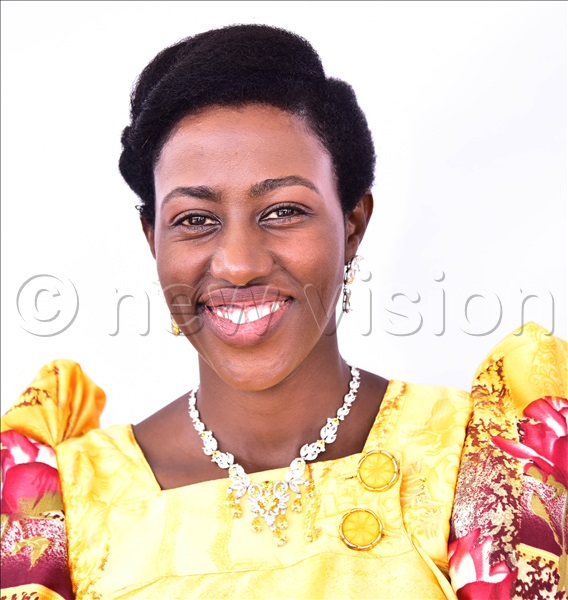
Wakiso
In Wakiso district, the current District Woman MP, Betty Naluyima, was the voters’ choice, with 62.9%. The respondents said they would choose her because she is hardworking and committed to improving social services, popular in the district, and contributes to the empowerment of women. She was followed by Rosemary Seninde with 23.8% of the votes. The voters said they would vote Seninde because she is helpful and attentive towards people’s challenges.
Lira
In Lira district, 54.1% of the sampled respondents said they would vote the incumbent, Linda Auma. Auma is the daughter of the late Maj. Gen. Oyite Ojok. Although the health minister, Dr Jane Ruth Aceng, is the Lira city Woman MP, 25.4% of the sampled respondents said they would vote her as Lira District Woman MP.
Aceng has already been nominated to contest as Lira city Woman MP. Her rival, the gender minister, Betty Amongi, was also mentioned in the poll, with 9.4% of the sampled voters saying they would vote her as Lira district Woman MP. Among also declared intention to contest as Lira city Woman MP.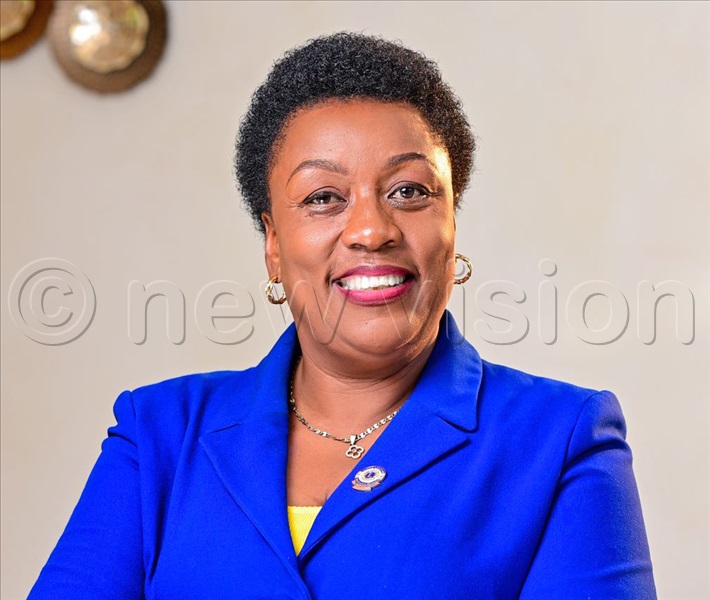
Koboko
In Koboko district, 79.5% of sampled voters said they would vote for Taban Sharifah Aate. Sofia Aate (9.1%) and Anite (4.5%) are the other women leaders voters cited. Sampled respondents said they support Taban Sharifah Aate because of her contribution to community projects.
Kole
In Kole, 67.3% of the sampled respondents said they would vote for Judith Alyek. Joy Imat Ongom (18.4%) is the other contender sampled voters cited. Alyek’s supporters described her as a “very supportive” lawmaker towards people’s concerns. On the other hand, those who rooted for Ongom described her as an “effective” community leader.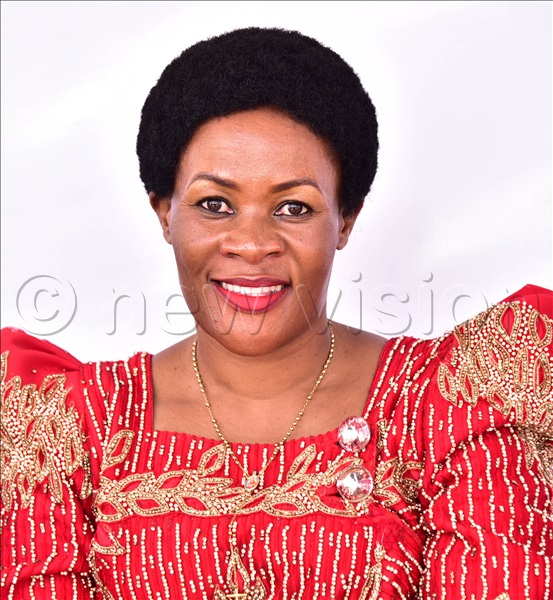
Kyegegwa
In Kyegegwa district, the people’s choice is Flavia Rwabuhoro, with 76.1% of the sampled voters saying they would vote for her if elections were held today. Jackline Kyogabirwe (13%) is the other contender voters rooted for.
Kyenjojo
Here, 55.3% of the sampled voters said they would vote for Faith Kunihira Philo. Margaret Nyakato (37.5%) is the other contender voters cited, among others. Voters said they support Kunihira because of her ability to bridge the gap between people’s concerns and service delivery initiatives.
Luwero
In Luwero district, 41.5% of the sampled voters said they would vote for Brenda Nabukenya because she is perceived to possess the necessary skills and qualities to effectively lead. Her closest contender, Nanyonjo got 19.1% of the total votes. The voters said they like Nanyonjo because of her popularity in the community.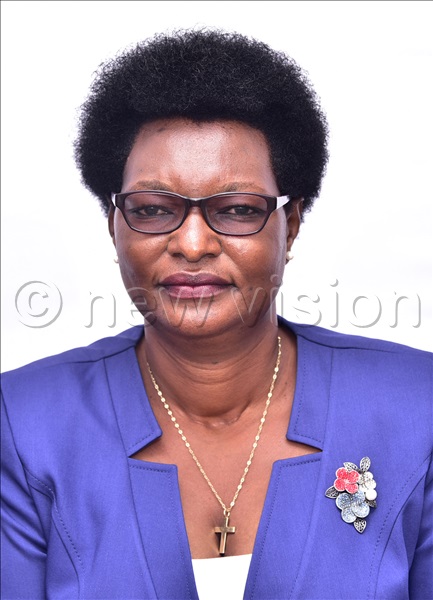
Maracha
In Maracha, the incumbent, Jennifer Driwaru, was the most preferred contender, with 81.8% of the sampled voters saying they would vote her as the district woman MP. Rose Ayaka Atima, at 9.1% is the other leader sampled respondents rooted for.
Masaka
For Masaka, 37.1% of the sampled voters said they would vote for Joan Namutawe. Florence Namayanja, the mayor of Masaka city, got 20.2% of the votes. Namutawe was highly supported because of her trustworthiness, maintaining integrity and does not engage in corrupt practices. She is also perceived to be an exemplary leader. The respondents said Namayanja was mainly supported because she possesses the necessary qualities to effectively lead.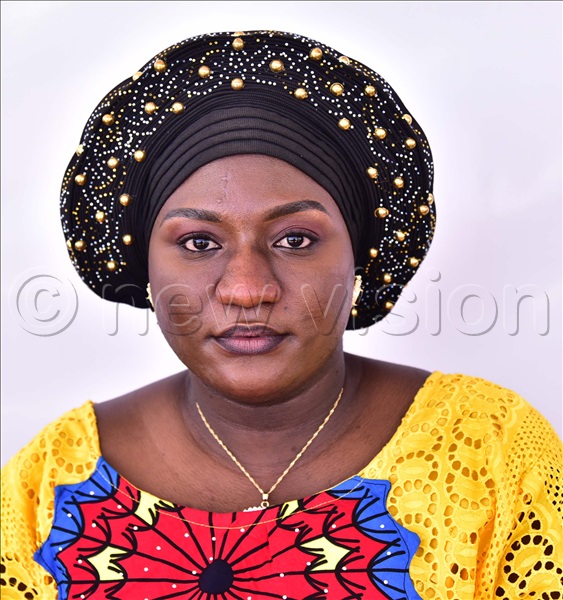
Masindi
In Masindi, the incumbent Florence Asiimwe leads the list with 52.5%, followed by the former MP for Bujenje county, Kabakumba Masiko, with 26.2%. Respondents said Asiimwe was still popular in the area, because she is not segregative and fights for gender balance in society. On the other hand, Kabakumba was supported for her relatable character to the ordinary person, fighting corruption and being transparent in her activities.
Mityana
In Mityana district, the lands minister Judith Nabakooba leads with 39.7%, beating her archrival and current district woman MP Joyce Bagala, who scored 20.5%. Voters said Nabakooba has greatly contributed to the development of the community and that she is popular in the district.
Bagala’s supporters said that she relates more with the citizens and is concerned about their welfare and challenges in the community. She is loved for leading by example and her strong decision-making abilities during service delivery.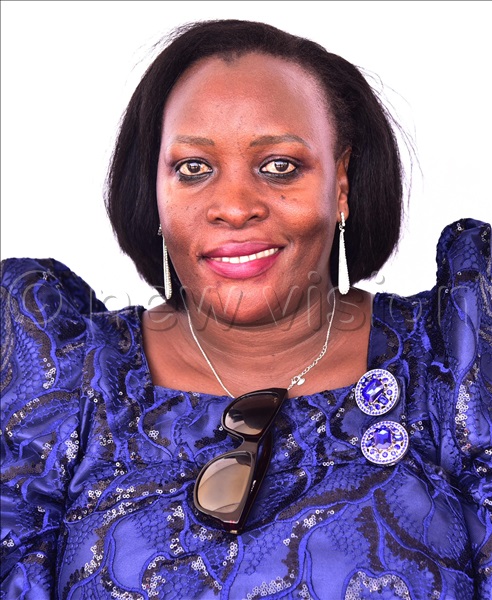
Mayuge
Third Deputy Prime Minister Rukia Nakadama Isanga proved to be still popular in Mayuge district, with 70.7% of the voters saying they would support her. This is because of her significant contributions towards service delivery in her community. Some 10% of the voters said they support Faima Nangobi. The voters endorsed her for her hard work and commitment to service delivery.
Mbarara
Sampled respondents in Mbarara (nearly half of them) 48.1% chose Rita Bwahika over the current MP Margaret Ayebale. Loida Muhimbura came in second with 16%. Rita Atukwasa who is the current Mbarara city MP, scored 2.5 %.
In the poll, voters supported Bwahika because of her leadership experience and her relatable personality that attracts the common people. Her responsiveness to people’s concerns in the community added more support from her voters. Muhimbura is supported because of her significant contributions towards service delivery in the community.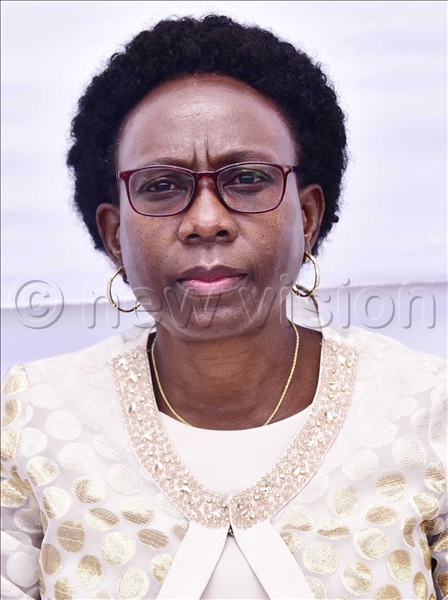
Mitooma
Juliet Bashisha, the current district woman representative, leads with slightly over half, garnering 52.3%. Bashisha is highly supported because of the capabilities and leadership skills she possesses. Voters also said they like her because of her important contributions towards service delivery in her community. She was closely followed by Rebecca Kyorampe, with 45.5%. Voters said Kyorampe was popular in the district, is a skilled and effective leader who is committed towards improving social services.
Moroto
In Moroto, Stella Atyang, the current district woman representative, got 63.0% of the total votes, followed by Apio Lucy Chengem, with 14.8%. Voters support Atyang because of her popularity in the district. Nkonge sampled voters saying they would vote for her come 2026. Businesswoman, Sarah Nkonge (25%), is the other leader sampled respondents cited.
She is also loved because of her visionary and high decision-making abilities. She is loved for “understanding” the challenges faced by the people in the community. Voters of Apio said she has strong and effective leadership skills.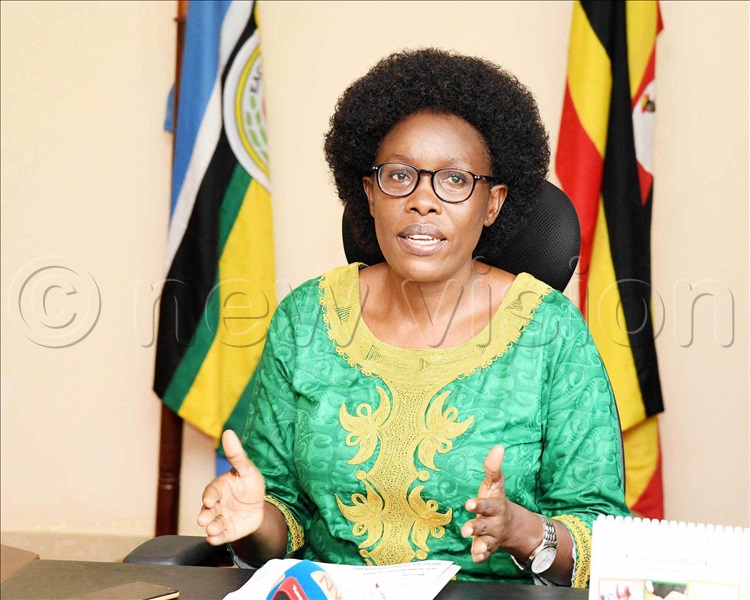
Mpigi
Teddy Nambooze, the current MP, leads with a majority of votes at 71.2%. Respondents said they support her because of her exemplary leadership, popularity in the community, and important contributions made to enhance the delivery of services in her area.
Voters sampled also singled out Sharon Mulungi of the National Unity Platform.
Lwengo
In Lwengo, the incumbent, Cissy Namujju, was the people’s choice, with 53.1% of the sampled voters saying they would vote for her come 2026. Businesswoman, Sarah Nkonge (25%), is the other leader sampled respondents cited.
Nebbi
In Nebbi district, Acibu Agnes leads with a majority of 67.8%. The respondents said Acibu is trustworthy, has integrity and is not involved in corruption-related activities. She is also perceived as exemplary in the community. She competed with seven other women, including Phionah Nyamutoro, who scored less than 6.8% votes.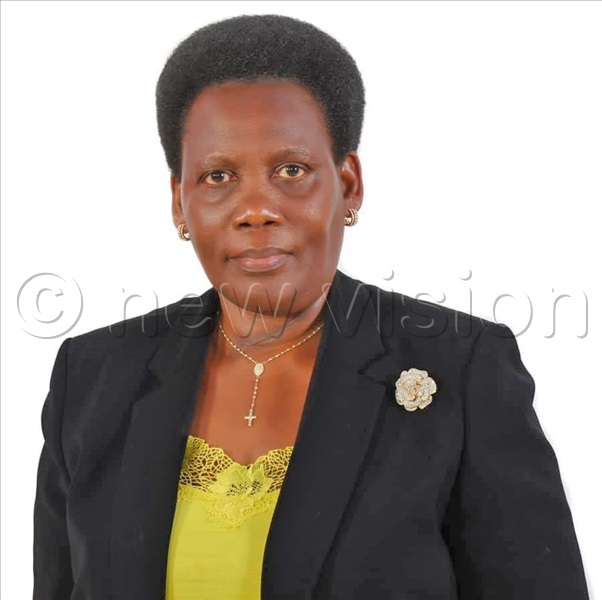
Omoro
In Omoro, 69.4% of the respondents said they prefer the incumbent, Catherine Lamwaka, as their next woman MP. The respondents said they would choose Lamwaka because of her support to the community and her hard work to improve social services in the district.
Lamwaka is followed by Betty Layika, with 16.7%.
Pallisa
Kaala Kevin Ojinga leads in Pallisa with 67.9% of the votes. The voters said they would vote for Ojinga because of her effective leadership skills and the hard work to improve social service delivery. Catherine Achola is the other contender that 14.8% of the voters also said they would vote for because of her approachable and relatable character to the common people.
Rakai
In Rakai district, 80% of the sampled respondents said they would vote Juliet Kyinyamatama Suubi, the incumbent, as woman MP next year. Voters said the reason they would vote for her is based on her ability to address most of the challenges faced by people in her community, and that she acts as an example of a good leader.
Rukungiri
In Rukungiri district, 38.3% of the voters said they would vote Mary Paula Turyahikayo, the former representative, because of her significant contributions in the community. She is also supported because of her high-quality leadership skills. A total of 15.0% said they would support the incumbent district woman representative, Medius Natukunda, because she is approachable, with a relatable personality.
Serere
For Serere district, 78% of the voters said they would choose their current district woman MP Hellen Adoa because she is trustworthy, has delivered and has not engaged herself in corruption activities. However, 7.3% of the respondents chose Beatrice Abejja, whom they said has been supportive, especially to the needy.
Sironko
In Sironko, 77.3% of the respondents sampled said they would choose the incumbent, Florence Nambozo. The respondents told the researchers that they would support Namboozo because she was popular in the district, supports the voters, and is committed to supporting people who are less privileged in her community.
A total of 19.3% said they would support Aisha Nabulo because she is approachable and relatable to the common people.
Soroti
For Soroti district, 50.0% said they would choose the incumbent, Ann Adeke Ebaju, because of her commitment to hard work during service delivery, being people-centred, supporting and giving attention to people’s challenges in the community.
She was followed by Joan Alobo, the city representative, who got 25.5% of the votes. People said they would choose Alobo if the elections were today because of her significant contribution to service delivery in their community. They added that she maintains integrity since Alobo does not engage in corrupt practices.
Tororo
Majority of 62.1% respondents in Tororo said they would support Sarah Opendi, the incumbent, because of her popularity in the community. They said she helps people with concerns and contributes to the development of her community. Only 10.3% said they would vote for Jancinta Ayo if the elections were held today.
Kanungu
In Kanungu, 38.6% of the respondents said they would vote for Patience Kinshaba because of her outstanding contribution to the community, which has enhanced the quality of service delivery. They also said they would support her because she is someone who supports people’s concerns in the community.
Betty Namara got 20.5%. Respondents said she understands the challenges faced by the people in her community.
Mukono
Hanifa Nabukeera, the Woman district MP, leads in Mukono with 62.4% of the total votes, followed by Betty Nambooze, the Mukono municipality area MP, with 15.8%.
Respondents said Nabukeera is mainly supported for her significant contributions made to the community, her leadership skills and capabilities, as well as the support and attention she gives to people with challenges in her community. Nambooze’s supporters said she possesses the necessary qualities to effectively lead, and she is committed to improving social service delivery in the area.
Affirmative action
The district woman MP position was triggered by an affirmative action policy ushered in by the NRM in 1986. The policy was meant to uplift the status of the marginalised groups, such as women, into positions of leadership.
Meeting in Parliament early in March 2025, district women leaders, who attended the second women’s parliament, rooted for a review of the policy to include term limits for woman MPs. Led by Lira district Woman MP, Linda Auma, they argued that two terms should be introduced for women in order to give room to other emerging women leaders.
However, responding to the calls for reforms, the state minister for gender, Peace Mutuzo, wondered whether the two terms would also apply to men.
“You are asking for two terms, how about the men? Rather, we should be talking about reviewing the 30% that has been for the last 30 years. The 30% affirmative action has not even given us 30% representation in Parliament. One woman representing a district has not yet generated 30% of the composition of women in Parliament yet affirmative action was meant to give a minimum of 30% to begin with and then increase as more women join the political space,” she said.
In Uganda, on top of the four cardinal roles of an MP (representation, legislation, oversight and appropriation), a woman MP is expected to champion women’s issues, promote gender equality and advocate policies that address specific needs of women and the girl child in order to achieve gender parity.
How the survey was conducted
The poll was conducted by Vision Group’s research team between March and May 2025, covering a sample size of 6,006 Ugandans countrywide.
To ensure national representation, the Vision Group research team sampled eligible Ugandan voters from across 58 districts. Only citizens possessing a valid National Identification Card and aged 18 years and above were sampled. The survey covered all 17 sub-regions of Uganda. The respondents were randomly sampled from both rural and urban areas.
Of the total respondents, 2433 were from urban areas, while 3573 respondents were picked from rural areas. According to the survey, the majority of the respondents were between the ages of 25 and 29 years (1201) and 30 and 34 years (1058). Only 19 of the total sampled respondents refused to respond to the questions.
New Vision editor-in-chief, Barbara Kaija, explained that the Citizens Manifesto is a compilation of Ugandan views collected by a team of professional researchers ahead of the national election.
On the credibility of the survey, Kaija said: “This is a scientific survey, and it was not influenced by anybody, not even the government is informed when we are doing this research. Any other researcher is free to do their research for comparison. I am very confident of the results because in the past, similar surveys done by New Vision have not been so different from the final election results.”
The Vision Group research department has long experience in carrying out market research and opinion polling. An opinion poll, often referred to as a survey or a poll, is a human research survey of public opinion from a particular sample.
